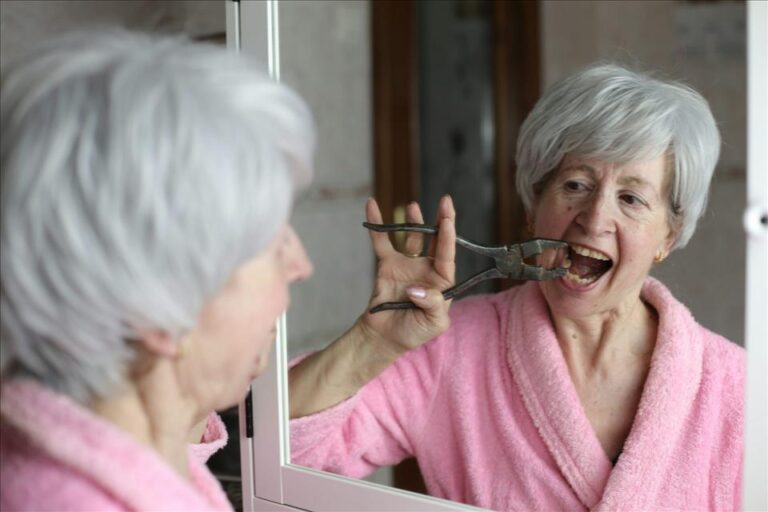(MENAFN- The Conversation) Many people in the UK struggle to access adequate dental care to keep teeth healthy. NHS dentistry is in decline and dental hygiene poverty is increasing. Budget cuts are contributing to ‘dental deserts’ across the country, where there is little or no NHS dental care provision and private care is impossible for many.
Lockdowns during the pandemic have also prevented many from accessing medical care, including NHS dentistry. It’s no surprise, then, that recent years have led to reports of people resorting to desperate measures to deal with dental woes.
A YouGov poll in March 2023 found that one in ten Britons had “performed dentistry on themselves”, including “using cement and superglue to fix crowns and dentures, killing an infection with urine, using ‘heated beads’ to replacing a missing tooth and applying chemical metal (glue commonly used for home or exterior repairs) as a filling.”
In 2022, academics at Plymouth University’s Peninsula School of Dentistry reported that one patient “used an arrow to remove gross calculus” while another attempted to extract 13 teeth using vodka and pliers.
Most of the tools you see at the dentist are scaled-down or refined versions of what you might have in your home toolbox. These bits of dental material are designed to make it harder for germs to inhabit their surfaces and are sterilized after each use – the pliers used to fix the fixture behind the toilet last month are unlikely to be so hygienic .
Autoextractions can create an oromandibular fistula, an abnormal tunnel between the mouth and the maxilla (the hollow space in the bones around the nose). If it’s less than two millimeters, it will usually heal on its own. However, larger fistulas pose a significant risk of infection.
Oral germs, fluids and food contents can be forced through the open hole into the warm, moist space of the upper sinus where infection can develop and progress – requiring invasive surgery.
Also, extracting a tooth may not help if the infection is at the interface between the tooth and the bone. So someone struggling with the pliers can end up in no better situation at best and possibly, at worst, in excruciating pain and with an open wound at risk of secondary infection.
DIY dentists also run the risk of leaving part of the tooth in the gum. Root debris often remains because the roots reach a thin point, which often breaks during extraction.
This is another risk of infection, as teeth have limited or no blood vessels running through them, so immune cells cannot fight the bacteria. The average person who extracts their own tooth will not be able to determine if part of the root remains, and if it causes problems later, they may need oral surgery to remove it – which can be expensive and incredibly painful.
There is also the risk that self-extractors can permanently change their bite mechanics, making eating painful and disrupting other healthy teeth in the jaw or damaging the soft tissues of the mouth.
They are not all white
While most people seem to turn to self-dentistry for pain relief, there are social media users who will go to alarming lengths just to make a movie star smile.
There have been cases of people using nail files to smooth out the natural ridges and variations of their teeth. This is extremely dangerous. It removes the hard protective layer of enamel from the teeth and causes microcracks to open up in the underlying layers which increases the risk of infection, tooth decay and the possibility of tooth death – all of which will cause future pain and discomfort.
Then there is at-home teeth whitening using hydrogen peroxide. Some people have applied hydrogen peroxide solution directly to the teeth, risking long-term damage for (potential) short-term gain.
Legal whitening kits are regulated to contain a maximum of 0.1% hydrogen peroxide, but users are exposing their teeth to many times higher than that. Hydrogen peroxide is a bleaching agent that destroys the tissues it comes in contact with. This means it could cause serious injury to the gums or digestive tract if swallowed.
All these risks show why seeing a dentist should be a priority if you have an oral emergency or are determined to have cosmetic surgery (and why increasing affordable dental benefits should be a priority for the government). Quick fixes and hacks usually end up costing more in the long run.
MENAFN05092024000199003603ID1108642109
Legal disclaimer:
MENAFN provides the information “as is” without warranty of any kind. We accept no responsibility or liability for the accuracy, content, images, videos, licenses, completeness, legality or reliability of the information contained in this article. If you have any complaints or copyright issues regarding this article, please contact the provider above.


